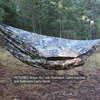The Patrol Method
Lessons and questions of Scout leadership and operating troop program
838 topics in this forum
-
- 14 replies
- 3.9k views
-
- 58 replies
- 14.4k views
-
- 37 replies
- 15k views
-
- 3 replies
- 2.1k views
-
- 7 replies
- 2.5k views
-
- 34 replies
- 12.4k views
-
- 15 replies
- 4.7k views
-
- 20 replies
- 6.2k views
-
- 50 replies
- 11k views
-
- 56 replies
- 12.8k views
-
- 3 replies
- 2.2k views
-
- 50 replies
- 13.1k views
-
- 14 replies
- 4k views
-
- 68 replies
- 25.9k views
-
- 12 replies
- 4.4k views






